PayPal Dropshipping: Personal or Business PayPal – Which One Is the Best in 2026?
Contents

Choosing between a personal account and a business account on PayPal can make a big difference for your dropshipping store. If you’re building a real online business, a PayPal Business account is usually the smarter choice. It looks more professional, supports higher transaction volumes, offers excellent customer service, and helps lower the risk of PayPal disputes and frozen funds.
When you pair it with a powerful dropshipping platform like Sell The Trend, you can automate key processes, work with reliable dropshipping suppliers, and focus on growing your business instead of stressing over payments.
Let’s break down the personal vs business PayPal debate, show you what works best for PayPal dropshipping, and explain how to set your store up the right way for 2026.
Key Takeaways
- A PayPal Business account is better for serious dropshipping, offering advanced tools, better protection, and higher trust.
- A Personal account works only for testing or casual selling, not for scaling a real online business.
- Upgrading to a Business account is fast, free, and lowers the risk of disputes or account holds.
- Following best practices like accurate tracking, transparent shipping, and solid documentation helps prevent PayPal disputes.
- Pairing PayPal with Sell The Trend streamlines operations, improves automation, and supports long-term business growth.


Is PayPal Still a Good Payment Option for Dropshipping in 2026?
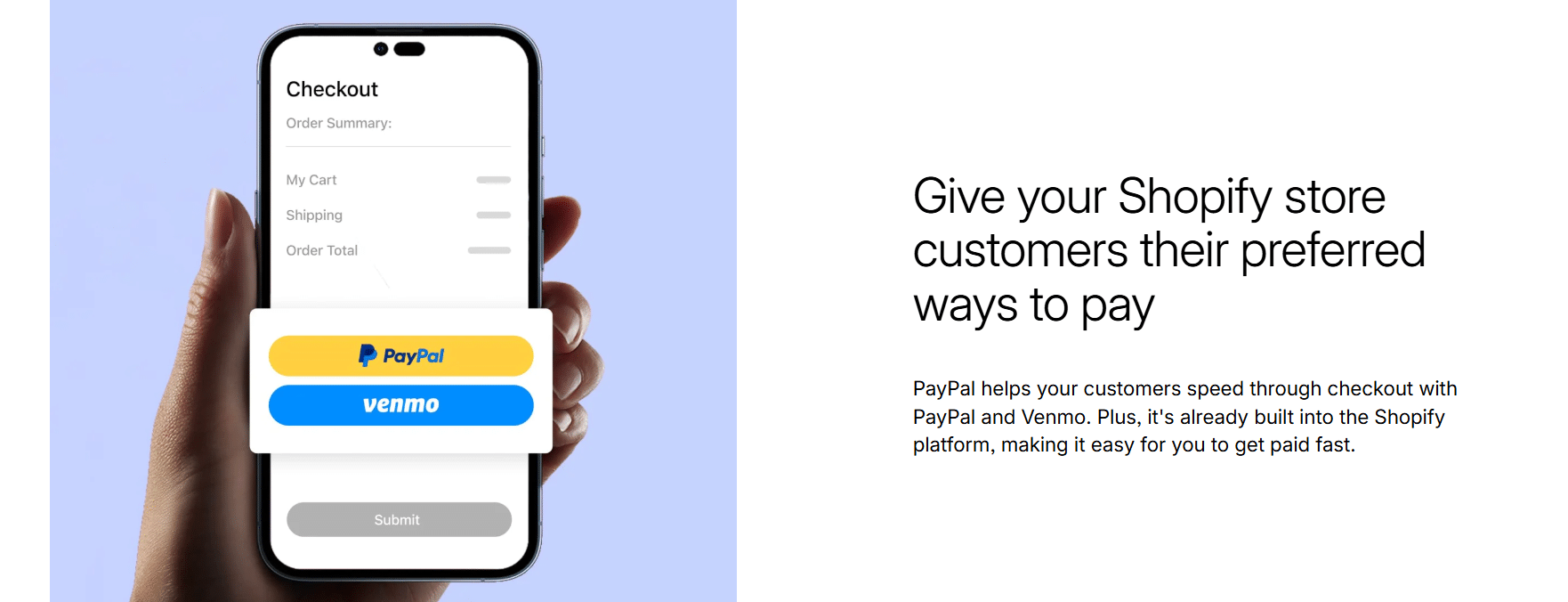
Yes, PayPal remains one of the most trusted online payment company solutions for dropshipping stores. It’s used by millions of online businesses to accept and send payments securely. With support for over 200 countries and customers worldwide, PayPal allows you to receive money, manage transactions, and reduce the risk of fraudulent transactions.
For dropshipping businesses, PayPal stands out because it:
- Provides strong seller protection policies and dispute resolution tools that lower the risk of too many disputes.
- Integrates easily with most online stores and ecommerce store platforms.
- Allows you to link your bank account and pay third party supplier invoices with ease.
- Supports multiple currencies and helps automatically generate tracking codes for better delivery transparency.
- Protects both sellers and buyers, making it a low risk and reliable payment solution.
These features make PayPal a top choice for many dropshippers who want a secure, flexible, and professional payment setup.
Next, let’s look at the key differences between Personal and Business PayPal accounts so you can choose the one that fits your dropshipping business model best.
What’s the Real Difference Between Personal and Business PayPal for Dropshipping in 2026?
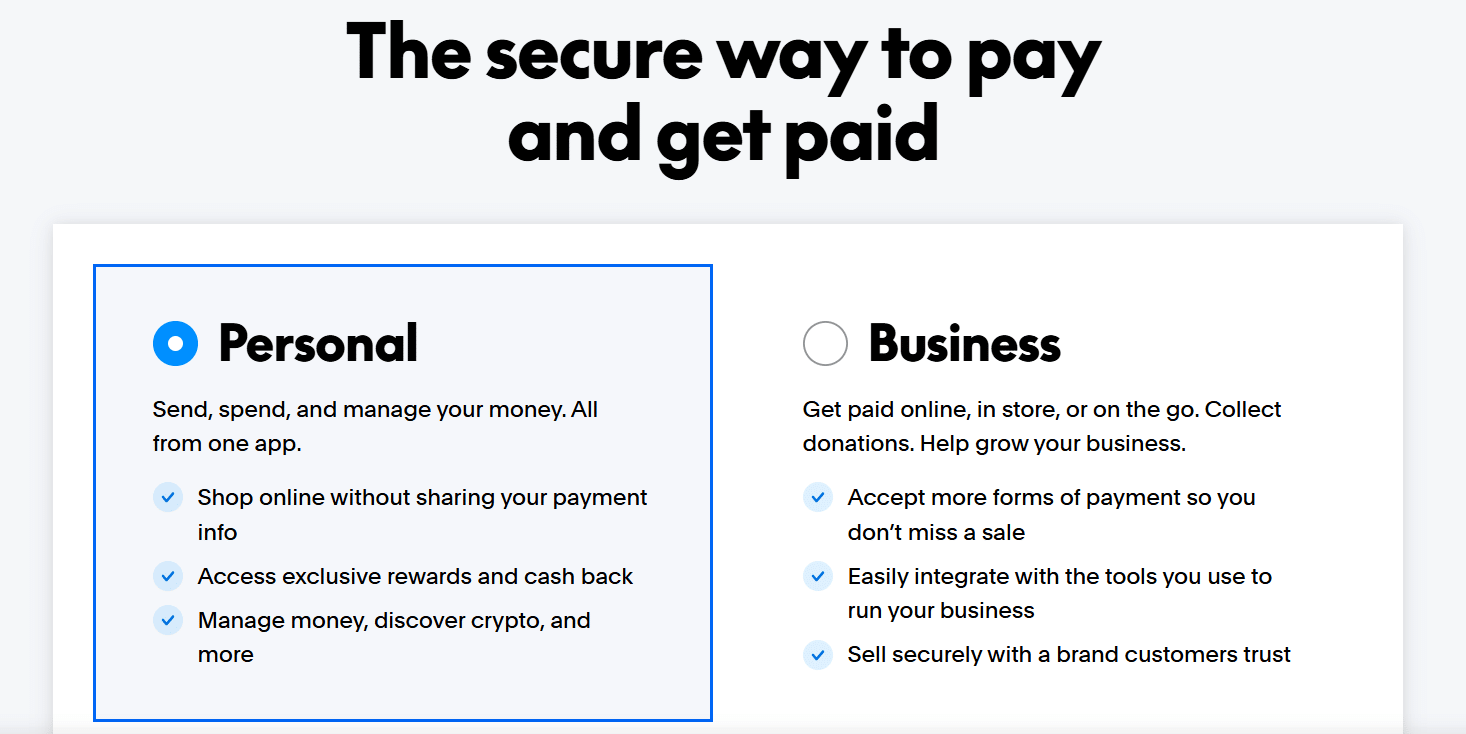
The main difference is simple: a personal account is best for casual selling, while a business account is built for running a real business.
Business accounts let dropshipping stores operate under a business name, handle higher volumes, access advanced tools, and reduce the risk of PayPal ban dropshipping stores.
A personal account gives you basic functionality, but it’s not ideal for scaling an online business. A business account offers more payment flexibility, advanced reporting, and stronger buyer protection, key advantages when managing multiple orders or working with reliable suppliers.
Up next, we’ll break this down further with a side-by-side comparison of PayPal Personal vs Business features so you can choose what fits your dropshipping business model best.
Feature Comparison: Personal Account vs Business Account
| Feature | Personal PayPal Account | Business PayPal Account |
|---|---|---|
| Branding | Shows your personal name | Displays your business name, building trust with customers |
| Transaction Limits | Lower limits, less suitable for scaling | Higher limits, ideal for growing dropshipping stores |
| Payment Features | Basic payments only | Advanced tools like invoicing, recurring payments, and installment options |
| Dispute Handling | Basic tools | 24/7 excellent customer service and advanced dispute resolution |
| Team Access | Single user only | Add up to 200 employees securely |
| Customer Perception | Looks less professional | Builds credibility with customers worldwide |
| Account Tools | Limited reports | Full reporting, financing, and automatically generate tracking codes |
| Risk of Restrictions | Higher chance of paypal ban dropshipping stores | Lower risk when using proper legal documentation and business documents |
| Setup Cost | Free | Free setup, only transaction fees |
Personal or Business PayPal for Dropshipping: Which One Is Best for You?
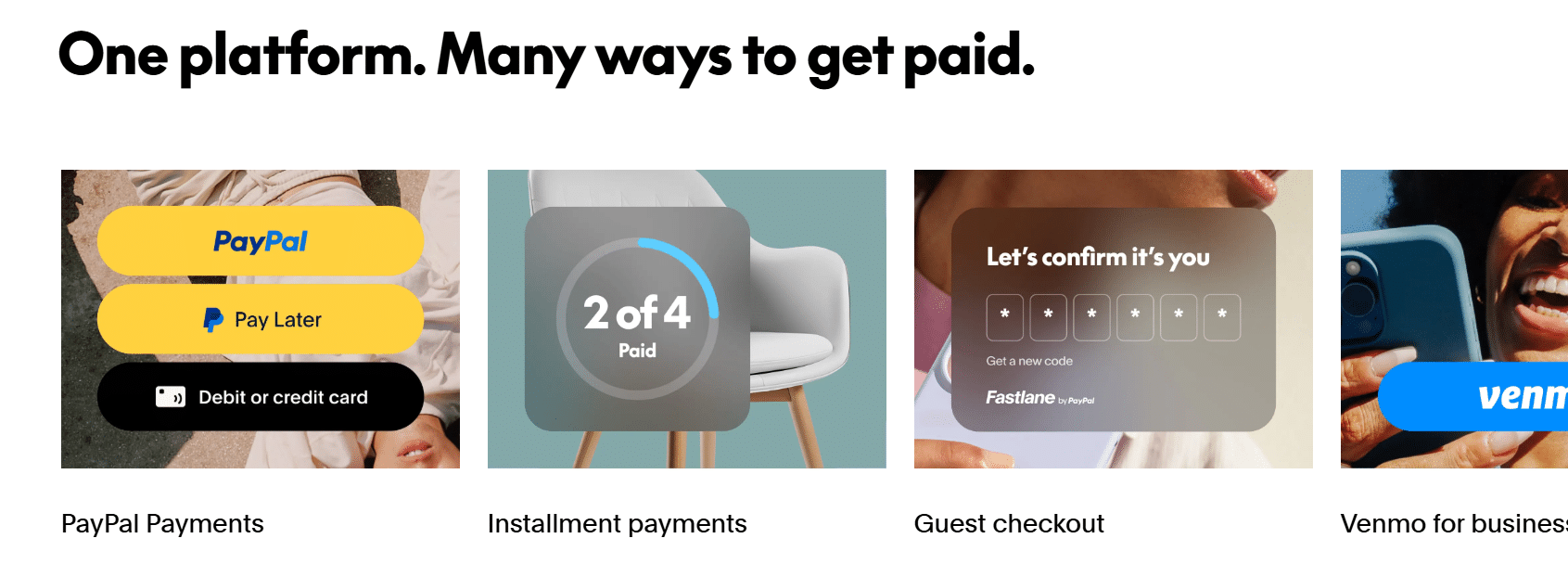
The short answer is simple: if you’re running or plan to build a real online business, choose a Business PayPal account. A personal account can work for casual selling, but it comes with limits that can slow your growth, increase the risk of PayPal disputes, and make your dropshipping store look less professional.
When to Choose a Personal Account?
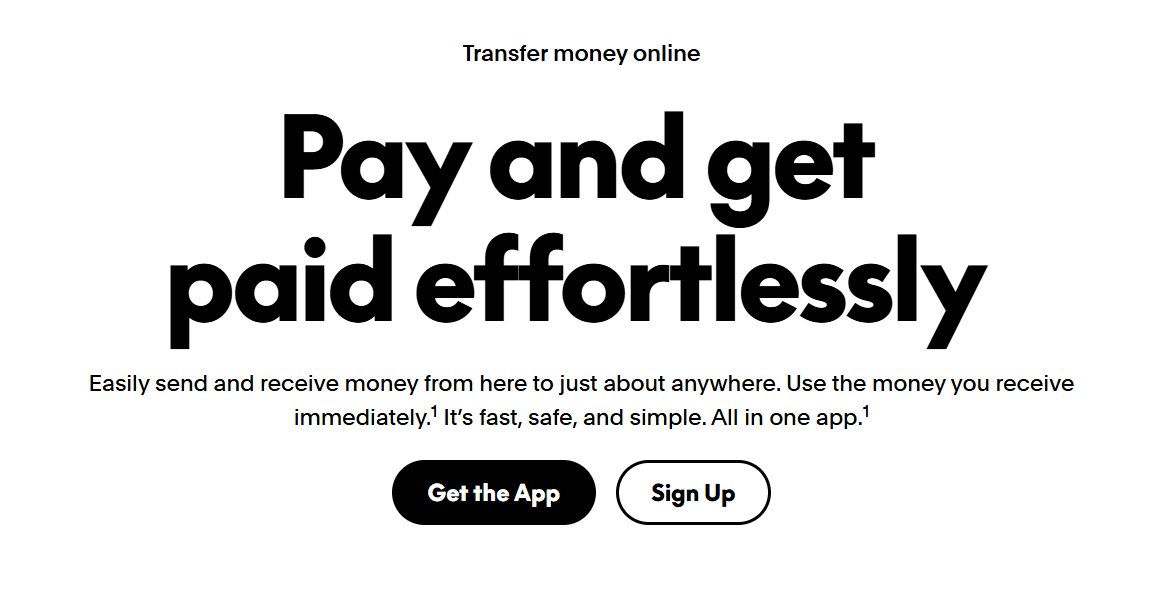
A personal account makes sense if you’re just getting started and don’t need advanced business tools. It’s better suited for early testing rather than long-term growth.
You should consider a personal account if:
- You’re testing the dropshipping business model on a small scale.
- You only sell occasionally to friends, family, or a limited audience.
- You don’t need invoicing, financing, or employee access.
- You’re comfortable with your personal name showing on each transaction.
When to Choose a Business Account?
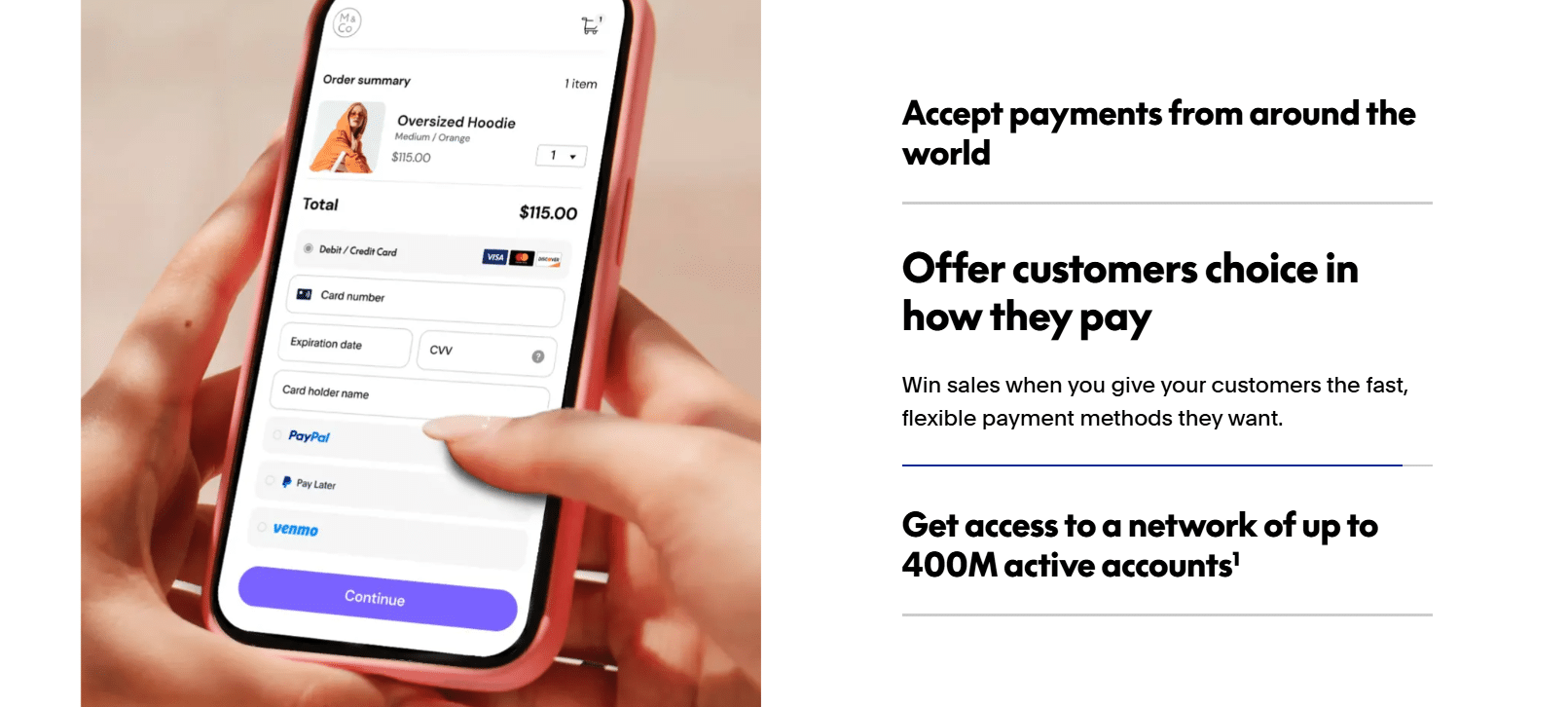
A business account is the better choice for any serious dropshipping store. It gives you more control, credibility, and flexibility to scale your online business without hitting early roadblocks.
You should consider a business account if:
- You want to build trust with customers worldwide under your business name.
- You need advanced tools like automatically generate tracking codes, invoicing, and reporting.
- You want excellent customer service and stronger protection against PayPal disputes.
- You’re scaling your store with reliable suppliers and want a lower risk of PayPal ban dropshipping stores.
How to Switch from a Personal to a Business Account?
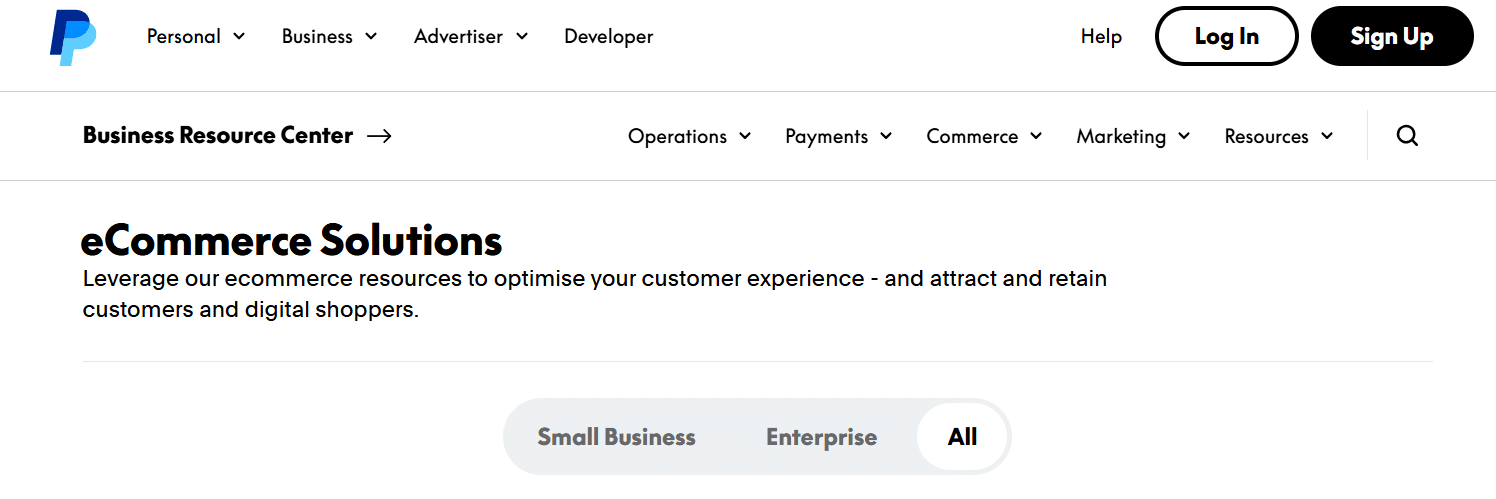
Upgrading from a personal account to a business account is quick, free, and essential if your dropshipping store is growing. This switch gives your online business access to advanced tools like invoicing, automatically generate codes, and financing options, while reducing the risk of PayPal disputes or sudden holds. It also makes your store look more credible by operating under your business name instead of your personal one.
The process only takes a few minutes, here’s exactly how to do it step by step.
Steps to Upgrade from a Personal to a Business Account:
1. Log in to Your PayPal Account
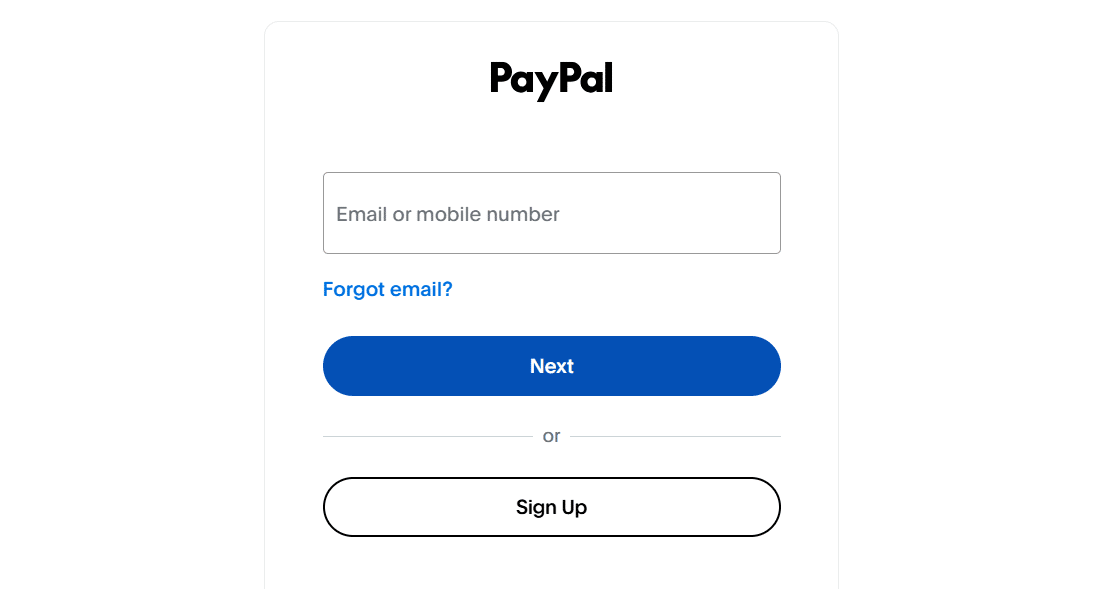
Start by logging into your current PayPal Personal account. Navigate to the settings menu, where you’ll find the option to upgrade to a Business account. This process is straightforward and does not require creating a new account, which ensures continuity for your PayPal dropshipping transactions.
2. Provide Business Information
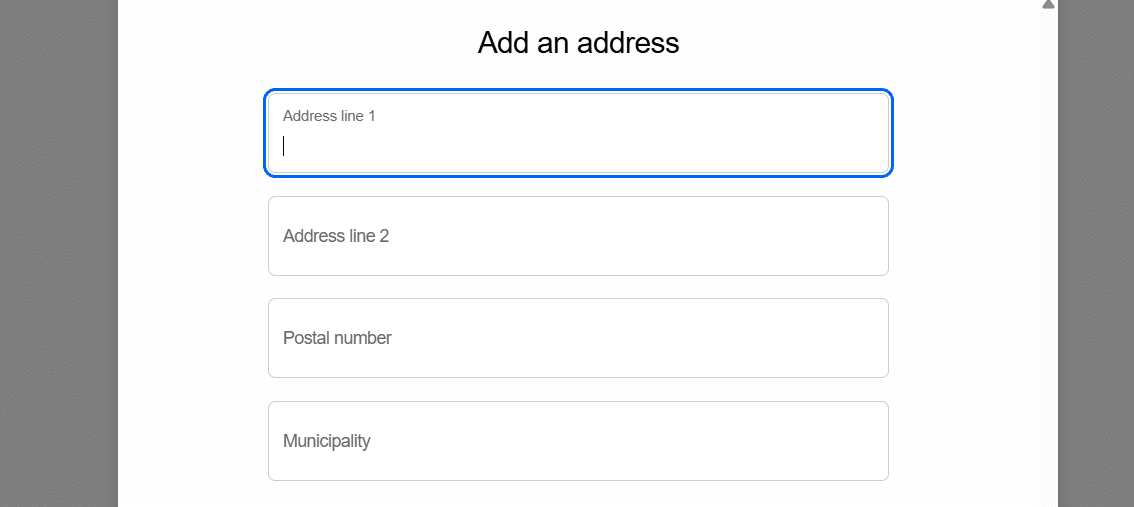
During the upgrade process, PayPal will prompt you to provide information about your dropshipping business. This includes your business name, address, contact information, and details about the type of products you sell. Accurate and thorough information is essential, as PayPal may use this data for account verification and compliance purposes, which is critical in maintaining your PayPal dropshipping operations without disruptions.
3. Link a Business Bank Account
PayPal dropshipping often involves receiving and sending funds frequently. Linking a dedicated business bank account to your PayPal account is recommended. This setup not only keeps your personal and business finances separate but also helps in managing cash flow, which is vital for dropshipping businesses.
4. Set Up Invoicing and Payment Preferences
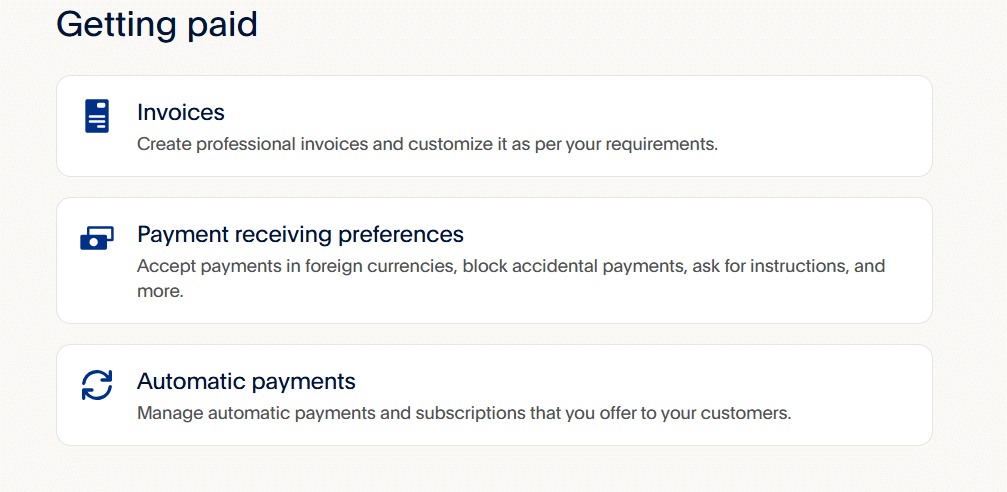
With a PayPal Business account, you can customize your invoicing and payment settings to better suit your dropshipping needs. Set up automatic invoicing, recurring payments, and customized payment terms to streamline your operations. These features are particularly useful for managing multiple dropshipping orders simultaneously.
5. Verify Your Account
Verification is a critical step in ensuring the full functionality of your PayPal account. To prevent limitations that could affect your dropshipping activities, verify your identity and business by submitting the necessary documents, such as your business registration, EIN, and photo ID. A fully verified account is less likely to face restrictions, ensuring uninterrupted service for your PayPal dropshipping business.
6. Review and Update Account Settings
Finally, review your new PayPal Business account settings. Ensure that your payment preferences, shipping information, and tax settings are configured correctly. Regularly updating these settings helps mitigate potential issues with PayPal dropshipping, such as disputes or delays in processing payments.
By upgrading to a PayPal Business account, you align your dropshipping operations with PayPal’s best practices, reducing the risk of account limitations and unlocking tools that support business growth. This step is essential for anyone serious about scaling their PayPal dropshipping store effectively and sustainably.
Best Practices for Using PayPal in Your Dropshipping Business

When it comes to PayPal dropshipping, adhering to best practices is essential for maintaining a healthy account and avoiding common pitfalls like account freezes or disputes. Since PayPal plays a pivotal role in handling payments for your business, it’s important to optimize your setup and operations to ensure smooth transactions and minimize risks.
1. Maintain a Healthy PayPal Account
A successful PayPal dropshipping business depends on keeping your account in good standing. To do this:
- Provide Accurate Product Information: Ensure that all product listings are detailed, accurate, and transparent. Misleading descriptions can lead to disputes and chargebacks, which are red flags for PayPal and could result in account limitations.
- Monitor Dispute Ratios: High dispute rates can trigger PayPal’s risk management system. Handle disputes quickly and professionally by communicating clearly with your customers and resolving issues before they escalate. This is particularly important in PayPal dropshipping where disputes can arise due to shipping delays or product quality concerns.
- Avoid High Refund Rates: Dropshipping businesses should manage customer expectations and ensure product quality to minimize refund requests. Excessive refunds can harm your relationship with PayPal, leading to increased scrutiny or even account limitations.
2. Set Realistic Shipping Expectations
Shipping times in dropshipping can vary, especially if you’re working with suppliers based overseas. In PayPal dropshipping:
- Be Transparent About Shipping Times: Communicate expected shipping times on your website and in order confirmation emails. This transparency helps manage customer expectations and reduces the likelihood of disputes.
- Provide Tracking Information: Always provide tracking numbers for orders. PayPal strongly favors sellers who can provide proof of shipment, which is critical in resolving disputes in your favor. Integrating your tracking system with PayPal ensures that your customers stay informed and that you are protected in case of claims.
- Work with Reliable Dropshipping Suppliers: Establish relationships with suppliers to ensure consistent shipping times and product quality. Use supplier directories to find vetted and trustworthy suppliers.
3. Manage Your Cash Flow
Effective cash flow management is crucial in PayPal dropshipping, as delays in receiving funds can impact your ability to pay suppliers:
- Use a Buffer Fund: Keep a reserve of funds in your PayPal account to handle unexpected expenses or delays in receiving payments. This buffer helps maintain smooth operations, especially when scaling your business.
- Avoid Payment Holds: PayPal may place a temporary hold on funds for new or high-risk accounts. To avoid this, build a positive transaction history by fulfilling orders promptly and minimizing disputes. Over time, PayPal may reduce or eliminate these holds as your dropshipping business establishes a reliable track record.
4. Optimize Your PayPal Integration
Proper integration of PayPal with your e-commerce platform is vital for seamless PayPal dropshipping:
- Use Business Account Features: Take advantage of PayPal’s business account features such as invoicing, payment reminders, and multi-currency support. These tools are designed to help manage your dropshipping payments more effectively. For online stores, tools like Stripe also cater to the unique needs of e-commerce businesses, offering flexible payment options and additional features to enhance the overall shopping experience.
- Sync Orders Automatically: Use automation tools to sync orders from your dropshipping store to PayPal. This ensures accurate record-keeping and helps with reconciling transactions. Many dropshipping platforms offer built-in PayPal integration, making this process straightforward.
5. Regularly Review PayPal Policies
PayPal’s policies can change, and staying informed is key to avoiding account issues:
- Stay Updated on Terms of Service: Regularly review PayPal’s terms and conditions, especially those related to dropshipping. Compliance with these terms helps prevent account freezes or limitations that could disrupt your business.
- Monitor Your Account Activity: Regularly monitor your PayPal account for any suspicious activity. Unauthorized transactions or chargebacks should be addressed immediately to protect your account and business.
By following these best practices, you can enhance the security and efficiency of your PayPal dropshipping business, ensuring that your account remains in good standing while providing a positive experience for your customers.
FAQs
1. Can I use PayPal for dropshipping?
Yes, you can use PayPal to accept payments for your dropshipping business. It integrates easily with your online store, lets you pay suppliers, and provides strong protection for both you and your customers. Many sellers also combine PayPal with other online payment company options to give buyers more flexibility at checkout.
2. Does PayPal report to the IRS?
Yes, PayPal may report certain transactions to the IRS if they meet the reporting thresholds set by law. If you operate as a legal business, it’s important to keep accurate financial records, file taxes properly, and make sure your legal business name matches the information on your PayPal account.
3. How to avoid getting sued dropshipping?
The best way to avoid legal trouble is to follow clear business practices: use a reliable shipping method, sell quality products, maintain proper legal documentation, and communicate transparently with customers. Always comply with PayPal’s acceptable use policy and provide accurate product details to minimize risks.
4. How do I avoid a 3% fee on PayPal?
You generally can’t avoid PayPal’s standard transaction fees for receiving payments, but you can minimize them by choosing the right account type, using domestic payment options when possible, and setting clear policies to reduce refunds and buyer claims. Business accounts also offer more flexibility in managing costs as your store grows.
5. What is the downside of using PayPal?
The biggest drawbacks include transaction fees, potential holds on funds, and strict compliance rules. If your business gets too many disputes or fails to follow policy, PayPal may limit or suspend your account. A stable internet connection and clear shipping and return policies help prevent unnecessary disruptions.
6. Is PayPal enough for Shopify?
Yes, PayPal can be enough for many Shopify sellers, but relying on a single payment method isn’t always ideal. Adding other company options gives your customers more ways to pay, helps reduce cart abandonment, and builds trust with different audiences.
Conclusion
PayPal remains a great payment solution for entrepreneurs looking to grow their businesses into 2026 and turbocharge their dropshipping journey. It offers personal and business accounts, which are both easy to set up.
Personal or Business PayPal for dropshipping: which should you choose? We recommend a business account as it comes with lots of tools and features designed to make it easy for you to collect payments from your customers, and also pay your suppliers.
To make the most out of your dropshipping business, it’s important to use the right tools.
This is why you need Sell The Trend.
Sell The Trend is an all-in-one dropshipping platform that allows you to automate your dropshipping product research and other repetitive tasks, connect with suppliers within and outside the US, and lots more.
Also, Sell The Trend allows you to automate order fulfillment with ease.
Ready to try out Sell The Trend to see how it will help your business?
Sign up for a free trial right away
Lisa is an eCommerce and digital marketing specialist with over 6 years of experience helping online businesses grow through data-driven strategy and hands-on execution.
She has worked across dropshipping and direct-to-consumer channels, focusing on product research and performance marketing. At Sell The Trend, she creates practical, research-backed content to help merchants make confident decisions.







